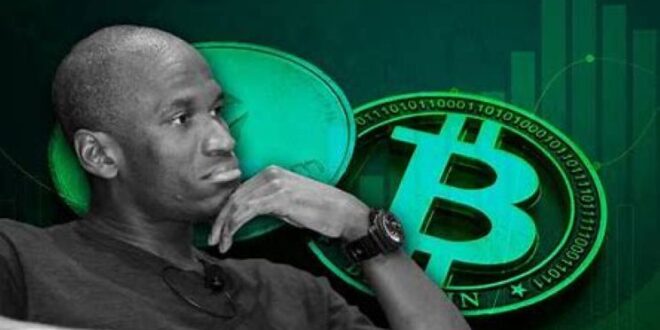Arthur Hayes, the outspoken co-founder of BitMEX and a leading voice in the crypto space, has never shied away from bold market predictions. In a recent interview, Hayes shared his views on the impact of U.S. tariffs, the role of crypto reserves in global finance, and the growing volatility in financial markets.
As the U.S. ramps up trade restrictions, central banks shift their monetary policies, and crypto remains at the center of macroeconomic debates, Hayes’ insights provide a unique perspective on what’s next for Bitcoin, altcoins, and the broader financial system.
U.S. Tariffs: Economic Weapon or Policy Blunder?
One of the biggest macroeconomic shifts Hayes addressed is the Biden administration’s push for new tariffs on foreign imports, particularly targeting China. According to Hayes:
- Tariffs are an inflationary force, driving up the cost of goods and reducing consumer purchasing power.
- China and other nations could retaliate by reducing their reliance on the U.S. dollar, accelerating de-dollarization trends.
- Investors should watch for currency volatility as global trade imbalances grow.
Hayes warns that these policies could push more countries to seek alternative reserve assets—potentially benefiting Bitcoin and other decentralized stores of value.
Crypto Reserves: The Future of Decentralized Finance?
With growing skepticism around traditional banking and fiat reserves, Hayes believes that crypto-native reserves could play a major role in the future of global finance. He highlighted:
- Bitcoin as a neutral reserve asset – In a world where central banks manipulate currencies, BTC offers a borderless, apolitical alternative.
- The rise of decentralized stablecoins – As regulatory scrutiny on centralized stablecoins like USDT and USDC increases, Hayes sees crypto-backed and algorithmic stablecoins gaining traction.
- Smart contract-driven treasuries – Decentralized protocols may soon hold significant Bitcoin and crypto reserves, creating an alternative financial system.
His vision aligns with the idea that crypto can serve as a parallel monetary system, especially as traditional fiat regimes face increasing uncertainty.
Market Volatility: What’s Next for Crypto?
When it comes to crypto market movements, Hayes has historically made some bold (and often accurate) predictions. In this interview, he outlined key factors influencing upcoming volatility:
- Liquidity cycles – Central banks, especially the Federal Reserve, will dictate market sentiment. A pivot toward looser monetary policy could trigger a massive Bitcoin rally.
- Institutional adoption – The arrival of Bitcoin ETFs, growing stablecoin supply, and traditional finance players entering DeFi will drive both bullish and bearish swings.
- Geopolitical uncertainty – Whether it’s the U.S.-China trade war, Middle East tensions, or banking instability, macro events could trigger major crypto price swings.
Hayes remains long-term bullish on Bitcoin, arguing that as trust in traditional financial systems erodes, crypto’s role as a hedge will grow stronger.
Arthur Hayes continues to be one of crypto’s most provocative thought leaders, blending macroeconomic insights with a deep understanding of digital assets. His views on U.S. tariffs, crypto reserves, and market volatility offer a roadmap for investors navigating uncertain financial terrain.
 Business Sandesh Indian Newspaper | Articles | Opinion Pieces | Research Studies | Findings & News | Sandesh News
Business Sandesh Indian Newspaper | Articles | Opinion Pieces | Research Studies | Findings & News | Sandesh News



